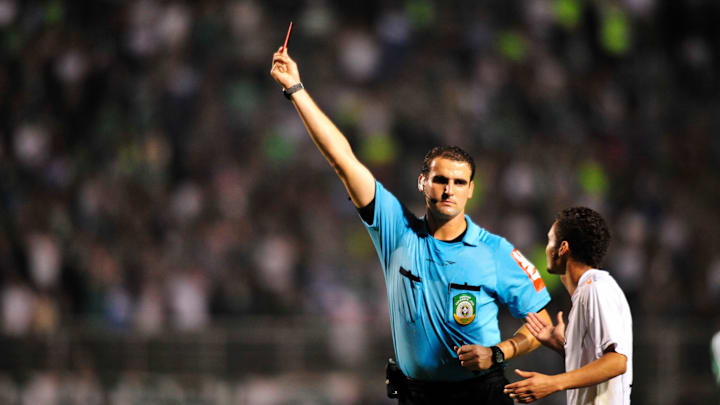The impartiality of referees is fundamental to ensuring the integrity of the game. However, recently, a controversy erupted in Major League Soccer (MLS), underscoring the complexities of referee-club relationships. Brazilian referee Guilherme Ceretta de Lima was removed from his role in a classic match between Inter Miami and Orlando City due to photos that emerged in the media, raising questions about a potential conflict of interest.
Guilherme Ceretta de Lima, a referee with a respectable history in Brazil, was assigned to officiate the showdown between Inter Miami and Orlando City. However, hours before kick-off, photos of him wearing Inter Miami's jersey began circulating on social media, triggering a wave of speculation about his impartiality in the game. Major League Soccer, sensitive to the perception of impartiality, made a swift decision and withdrew him from the match.
Follow MLS Multiplex on X (Twitter).
The decision to remove Ceretta de Lima raises several questions about independence and transparency in the refereeing process. While some argue that the photos alone should not be enough to question the integrity of an experienced referee, others contend that the perception of impartiality is as important as impartiality itself. In a sport where trust in refereeing is essential, MLS seems to have opted for a cautious approach to preserve the integrity of the game.
Furthermore, the controversy highlights the tensions between referee associations and professional soccer leagues. In the case of MLS, the Professional Soccer Referees Association (PSRA) is currently in negotiations with the league's Professional Referees Organization (PRO) for a new collective bargaining agreement. While these negotiations are ongoing, "replacement" referees are being recruited to cover the gaps left by those who are part of the association.
Ceretta de Lima's situation also sheds light on the pressures faced by referees in an increasingly scrutinized environment. With the rise of social media and video technology, every decision by a referee is subject to meticulous and sometimes ruthless analysis.
While the decision to remove Ceretta de Lima may be seen as a prudent measure to preserve the integrity of the game, it also raises concerns about the lack of clarity and consistency in referee appointment criteria. While some question why a referee with Ceretta de Lima's history and reputation would be appointed to a game involving a club he apparently admires, others argue that his competence as a referee should be the sole criterion considered.
As leagues seek to preserve the integrity of the game, it is essential to ensure that referees are appointed based on their ability to make impartial and objective decisions. At the same time, it is important to recognize the pressures and challenges faced by referees in an increasingly scrutinized environment. The question remains: where to draw the line between competence and perception on the field?
